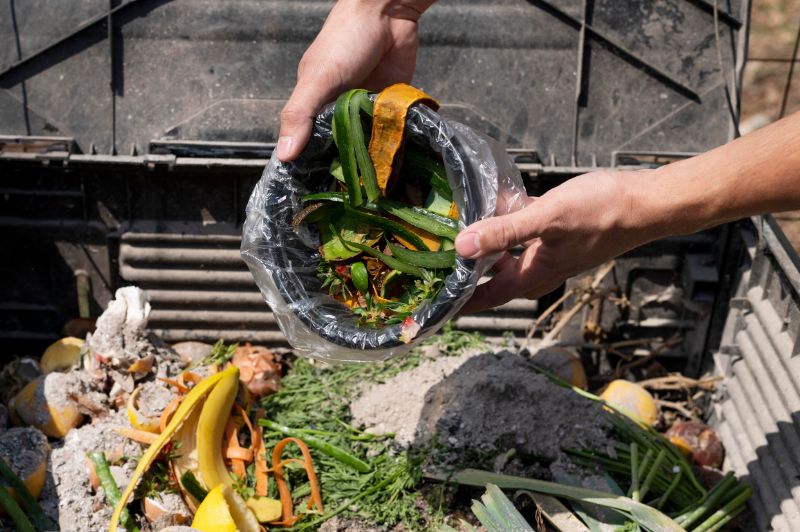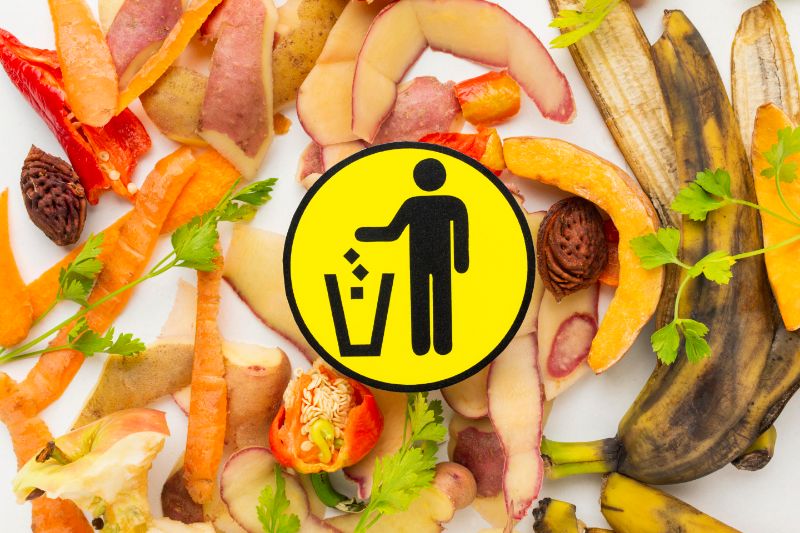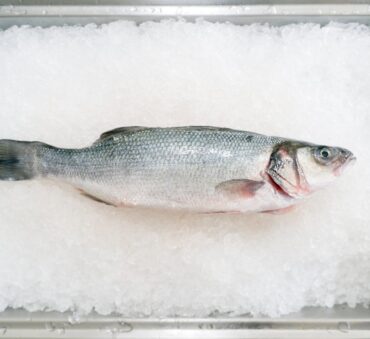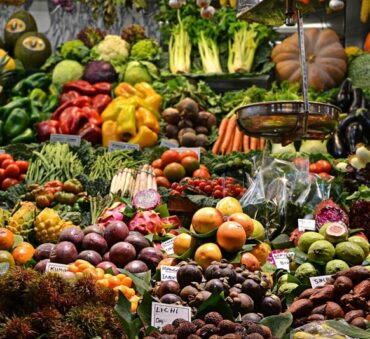Nearly a third of all food produced around the world is lost each year, resulting in severe environmental, economic, and social implications.
Reducing waste, whether through small- or large-scale operations, is a complex process that requires cooperation between multiple parties. At Shapiro, we understand the importance of reducing waste, and we also know that the first step to making a large-scale change is to raise awareness of the current food waste crisis.
As people become increasingly aware of the fight against food waste, there’s often uncertainty about the impact of food waste, strategies to reduce it throughout the supply chain, and even the role of technology in new approaches.
To increase awareness about this topic, we’re answering frequently asked questions about food waste, providing valuable insights and guidance to support a more sustainable future.
Key Takeaways
- The term “food waste” refers to food that is discarded or lost along the food supply chain, resulting in severe social, environmental, and economic effects.
- Food waste has far-reaching environmental repercussions, including increased landfill use, greenhouse gas emissions, and significant resource loss. As a result, there is an urgent need for effective waste management strategies and solutions that can offset these effects.
- Food waste has a significant economic and social impact in addition to its environmental impact, since it exacerbates food insecurity and limits the availability of healthy food options. Understanding the broad consequences of food waste is critical, as it has a huge impact on different parts of the economy and society, influencing supply chain dynamics.
- Addressing food waste necessitates a comprehensive approach involving not only huge organizations but also individuals and communities. Diverse strategies, from changing personal habits and enhancing inventory management to implementing regulatory reforms and using technology, are required.
- Using principles from the circular economy to convert food waste into resources represents an innovative approach to waste management. Composting, anaerobic digestion, bioenergy production, and repurposing trash for animal feed are all examples of innovative approaches that can help reduce waste significantly.
What is Food Loss and Waste?
Food loss and waste refers to food that is discarded or lost at various stages of the supply chain, impacting economies, societies, and the environment. Understanding these terms is essential for developing effective strategies to mitigate their effects and promote sustainability. Keep reading for answers to some of the most common questions on food waste and loss.
What Constitutes Food Waste and Food Loss?
Though food waste and food loss are often used interchangeably, they have key differences in where and why they occur along the supply chain. That said, food waste is edible food items that are discarded or wasted at the consumer and retailer levels, which may occur due to over-purchasing, confusion over expiration dates, consumer preferences, and inefficient household food waste management.
Food loss, on the other hand, occurs at the early stages of the supply chain before it reaches retailers and consumers, often due to spoilage, inadequate climate control, and strict grading and sorting processes, among others.
What’s the Difference Between Avoidable and Unavoidable Food Waste?
Avoidable food waste is food that could have been consumed if properly managed, while unavoidable food waste is food that was never intended for consumption. Understanding the difference between avoidable and unavoidable food waste is key to creating solutions in both areas. While avoidable food waste can be prevented with various waste management strategies, the goal of unavoidable food waste is to divert it from landfills through the implementation of recycling strategies.

Why is it Important to Reduce Food Waste?
Understanding the differences between food loss and food waste, as well as avoidable and unavoidable food waste, helps businesses and organizations tackle the issue in a more comprehensive manner. By having a clear understanding of these differences, it’s easier to create effective management and reduction strategies that address each area. To learn more about food waste vs. food loss, types of food waste, and the consequences of food waste, read our previous article about food waste facts.
What is the Environmental Impact of Food Waste?
The environmental impact of food waste is multifaceted, contributing to landfill use, climate change, and the loss of resources, demonstrating the importance of creating tailored waste management strategies that mitigate its consequences. In this section, we’ll answer some of the most common food waste questions regarding the environment.
Why is Food Waste an Important Environmental Issue?
Food waste has severe environmental consequences, including excess landfill use, greenhouse gas emissions, resource depletion, pollution, and a loss of biodiversity. With far-reaching implications that go beyond disposal, food waste has both short- and long-term effects that must be addressed to create a sustainable future.
How Does Food Waste Produce Methane?
When food waste is discarded in landfills, it becomes buried under layers of food and other materials, meaning it must decompose in an oxygen- and light-free environment. Over time, the decaying of organic waste under anaerobic conditions generates methane gas, a powerful greenhouse gas that contributes to global warming. In fact, an estimated 8-10% of global greenhouse gas emissions are associated with food that is not consumed.
How Does Food Waste Affect Biodiversity?
Food waste causes biodiversity loss by destroying habitats, disrupting the ecosystem, negatively impacting soil health, and increasing the amount of pollution in the world. This demonstrates the broader ecological impacts of food waste, with habitat destruction and species endangerment being top concerns for the environment.
How Does Food Waste End Up in Landfills?
Food waste in landfills is a result of waste generated throughout the entire supply chain, including production, households, retail stores, and businesses. There are many reasons why food is discarded, including poor agricultural practices, issues in transportation and storage, overproduction, strict grading and sorting processes, misunderstandings of expiration dates, bulk purchasing, and more.
Food waste is directed to landfills regardless of its origin, unless an effective waste management strategy is implemented. To reduce the environmental impact of waste in landfills, various diversion strategies can be used, such as food recovery and redistribution, improved inventory management, and recycling efforts, among others.

What are the Economic and Social Ramifications of Food Waste?
Food waste affects the economy, contributes to food insecurity, and limits access to nutritious food. Understanding the economic and social ramifications of food waste is key to comprehending the full scope of its consequences. As we’ll see below, food waste plays a significant role in both the economy and society, affecting different areas and organizations throughout the supply chain.
Why is Food Waste Bad for the Economy?
The economic impact of food waste affects producers, households, and businesses alike, resulting in increased production costs, high disposal fees, lost revenue, and higher prices for consumers. In total, the UN Food and Agriculture Organization claims that the monetary loss due to food waste around the world amounts to $940 billion annually, demonstrating the financial inefficiency of food waste.
How Does Reducing Food Waste Help World Hunger?
Reducing food waste has the potential to alleviate world hunger by optimizing resource utilization and redistributing surplus food to those in need. With as many as 783 million people facing chronic hunger around the world, improved donation efforts can help bridge the gap between wasted food and food insecurity. In addition, reducing waste can help stabilize food prices by reducing losses throughout the supply chain, making valuable food items more accessible to a wider audience.
How Does Food Waste Affect Poverty?
Food waste contributes to food insecurity and limits access to nutritious food, both of which affect poverty. The resources used for producing, processing, and transporting food that is thrown away could be allocated to important initiatives, such as education, healthcare, and programs that offer assistance to those in need. By implementing waste reduction strategies and redistributing surplus food, we can create more sustainable solutions that offer resources to those in need and alleviate food insecurity.
What are the Strategies and Solutions for Reducing Food Waste?
Food waste occurs across different sectors, affecting large corporations, individuals, and communities alike. That said, strategies to reduce waste include changes to personal habits, improved inventory management, policy changes, the use of technology to optimize the supply chain, composting, and donation initiatives, among others. As we’ll see below, there are different approaches that can be implemented across the supply chain, with tailored strategies required to address various challenges and create long-lasting solutions.
How Can You Make a Difference by Reducing Food Waste at Home?
Households can reduce waste by planning meals, improving storage methods, avoiding over-purchasing and over-serving, and repurposing waste where possible. Households can also implement food waste recycling strategies, which may include at-home composting or getting involved in community recycling efforts.
Individuals who are unsure of how to reduce food waste at home can implement a food waste tracking system. This system involves monitoring and recording food waste to identify where it’s being generated and how much, allowing households to recognize patterns and reduce waste.

How Can Businesses Reduce Food Waste?
Businesses can reduce food waste by improving inventory management, using technology for accurate demand forecasting, employing proper storage methods, and educating staff on food waste reduction techniques. Businesses can also improve their donation initiatives by partnering with local organizations to divert food from landfills and address the food insecurity crisis. These strategies are not only environmentally friendly but cost-effective, making them a valuable approach in the food industry. Read our food waste management guide to learn more.
How Can Schools and Universities Reduce Food Waste?
Food waste in schools and universities can be reduced by donating leftover food to local food banks, practicing portion control, creating on-site recovery initiatives such as composting, regularly monitoring food waste levels to identify room for improvement, and implementing strategic procurement practices.
By improving awareness and implementing initiatives, schools and universities can cultivate a culture of sustainability, creating lasting positive change in the environment and community.
How Can Grocery Stores Reduce Food Waste?
Grocery stores can significantly reduce food waste by implementing strategic planning, such as optimizing inventory management to align with consumer demand and prioritizing the sale of products nearing their expiration through discounts or donations. Grocery stores can also donate surplus food, educate staff and customers on food waste reduction strategies, and implement composting programs.
How to Deal with Food Waste in Restaurants?
Restaurants can reduce food waste by improving inventory management, practicing portion control, participating in food donation programs, storing food properly, repurposing ingredients, and conducting regular waste audits.
How Do Cruise Ships Dispose of Food Waste?
Leftover food on cruise ships is often disposed of at the port, incinerated, or pumped out to sea, all of which have environmental consequences. Given the huge challenge of food waste in the hospitality industry, cruise ships must seek sustainable methods to dispose of food waste, ensuring environmental compliance and ocean health. Strategies include composting, anaerobic digestion, and donating surplus food to food banks.
How Can Technology Reduce Food Waste?
Food waste technology assists in the prevention, treatment, and collection of food waste, helping businesses improve their sustainability efforts and minimize their environmental footprint. Some of the ways that advanced technology is leveraged to cut down on food waste include smart inventory systems, predictive analytics, food waste apps that connect consumers with surplus food, and advanced tracking and monitoring systems, among others.
How Can the Government Help Reduce Food Waste?
The government can help reduce food waste by investing in prevention measures, enforcing a date labeling standard, creating awareness campaigns to educate consumers, and implementing regulations and incentives for businesses to reduce waste and donate surplus food.
While there has been an increase in food waste laws in the U.S., more policies and incentives are required for large-scale change.

How Can You Turn Food Waste into Resources?
Turning food waste into resources involves innovative approaches that embrace the principles of a circular economy, which focuses on minimizing waste and reusing, recycling, and repurposing materials. This can be done through composting, anaerobic digestion, bioenergy production, and turning waste into animal feed, among others.
How Can Food Waste Become a Natural Resource?
Food waste can be turned into natural resources through various processes, with one of the primary methods being composting, an approach that turns organic waste into nutrient-rich compost. Food waste can also be turned into energy through anaerobic digestion or transformed into animal feed, both of which address food waste and circular economy.
Why is it Important to Compost Food Waste?
Converting food scraps into compost is a valuable method that reduces landfill use, minimizes methane emissions, supports soil health, and increases cost savings for businesses. Composting is a simple yet impactful environmental action that can be implemented in households, through community initiatives, or used by large businesses and organizations as an effective waste reduction effort.
How to Decompose Food Waste Faster?
When composting, you can accelerate the decomposition of food waste by shredding or chopping food waste into smaller pieces, regularly turning the compost pile to ensure aeration, keeping your pile moist, and having the proper ratio of brown to green materials. Technology can also be used to monitor temperature, moisture, and oxygen, therefore helping to optimize conditions and making composting a quicker and more efficient process for reducing waste.
How Can Food Waste Be Turned Into Energy?
There are various ways to transform food waste to energy, including anaerobic digestion, thermal conversion, and hydrothermal liquefaction. These processes reduce landfill use and methane emissions while producing a renewable energy source, offering a win-win solution for environmental management and energy production.
How to Make Money from Food Waste?
There are several entrepreneurial opportunities in transforming food waste into valuable products, such as selling organic compost, converting food waste into bioenergy, repurposing surplus ingredients to create new revenue streams, and turning food waste into animal feed. Businesses can also take advantage of food donation initiatives by developing models for redistribution, creating mobile apps to facilitate the process, and generating revenue through service fees.
Conclusion
At Shapiro, we believe the first step to a more sustainable future is to raise awareness. With a growing interest in waste reduction and the implementation of innovative techniques and technology, large-scale change can be made to reduce the environmental, economic, and social implications of food waste.
That said, we’re available to answer any food waste questions that companies may have, offering not only guidance but also food waste recycling services to facilitate the entire process.
If you have any questions about food waste or want to know more about our organic waste management solutions, contact us today.
Baily Ramsey, an accomplished marketing specialist, brings a unique blend of anthropological insight and marketing finesse to the digital landscape. Specializing in educational content creation, she creates content for various industries, with a particular interest in environmental initiatives.



